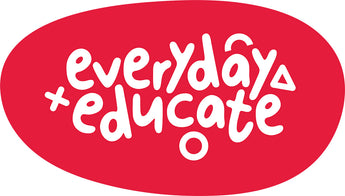As a parent, you want the best for your child's growth and development. You may wonder what you can do to help your child learn and grow. One of the most important things you can do is to encourage play. Play is not just a fun pastime for children; it is essential for their physical, emotional, and cognitive development. In this article, we will explore the power of play and how it can help your child learn and grow.
Introduction to Play
Play is any activity that is freely chosen, enjoyable, and intrinsically motivated. Play can take many forms, such as pretend play, physical play, and constructive play. Children learn through play, and it is an essential part of their development. Play helps children develop social skills, emotional regulation, language skills, creativity, problem-solving skills, and physical skills.
Different Types of Play
There are different types of play that children engage in, and each type of play has its benefits.
Pretend Play
Pretend play is when children use their imagination to create scenarios and act them out. This type of play helps children develop their social skills, emotional regulation, and creativity.
Physical Play
Physical play involves any activity that gets children moving, such as running, jumping, climbing, and dancing. This type of play helps children develop their gross motor skills, coordination, and balance.
Constructive Play
Constructive play is when children use materials to create something, such as building with blocks or drawing. This type of play helps children develop their problem-solving skills, creativity, and fine motor skills.
Benefits of Play
Play has numerous benefits for children. Here are some of the ways play can help your child learn and grow.
Emotional Development
Play helps children develop emotional regulation skills. When children engage in play, they learn to manage their emotions and express themselves in a safe and appropriate way. Through play, children can explore their feelings and develop empathy for others.
Social Development
Play helps children develop social skills. When children engage in play with others, they learn to take turns, share, and collaborate. They also learn to negotiate and resolve conflicts.
Language Development
Play helps children develop language skills. Through play, children learn new words and concepts. They also learn to communicate their thoughts and feelings.
Cognitive Development
Play helps children develop cognitive skills. When children engage in play, they learn to problem-solve, think critically, and use their imagination. Play also helps children develop their memory, attention, and concentration.
Physical Development
Play helps children develop physical skills. When children engage in physical play, they develop their gross motor skills, coordination, and balance. Constructive play helps children develop their fine motor skills.
How to Encourage Play
Encouraging play is easy. Here are some tips for how you can support your child's play:
Provide Time and Space
Make sure your child has time and space to play. Set aside time each day for unstructured play. Provide a safe and stimulating environment for play.
Offer Materials and Toys
Provide a variety of materials and toys for your child to play with. Offer open-ended toys, such as blocks or playdough, that can be used in different ways.
Join in the Fun
Join in your child's play from time to time. This will show your child that you value their play and will help strengthen your relationship with them.
Conclusion
Play is a powerful tool for your child's development. Through play, children learn essential skills that will help them throughout their lives. Encouraging play is easy and can be done in many ways. By supporting your child's play, you are setting them up for success.



 Chat with Us
Chat with Us